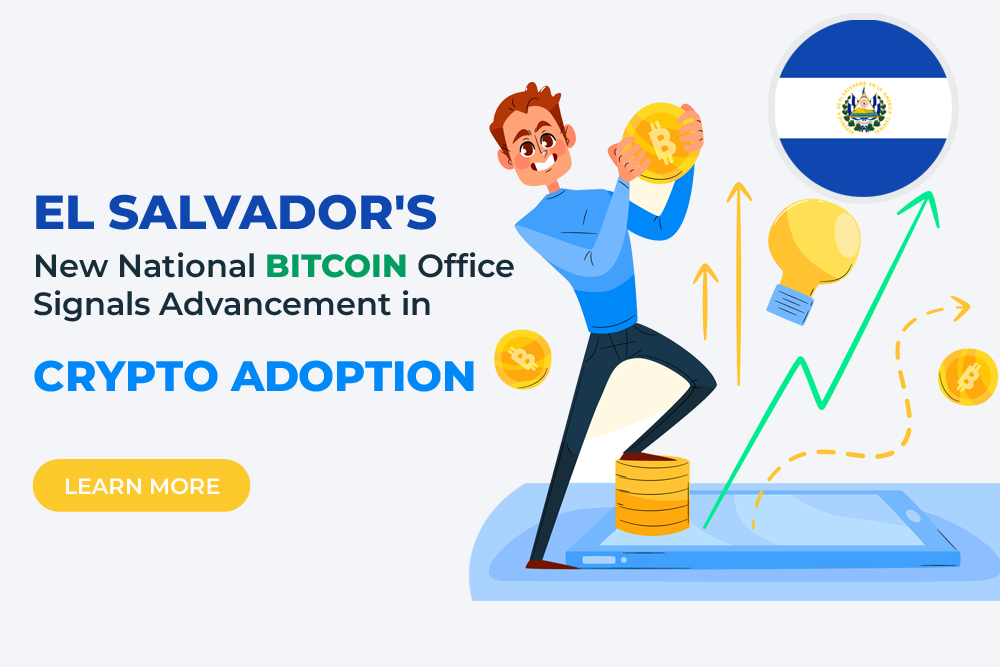
Introduction to Bitcoin Runes
Bitcoin Runes represents an innovative step forward in the evolution of the Bitcoin blockchain, offering a new protocol for fungible tokens. Developed by Casey Rodarmor, the mind behind the Ordinals protocol, Runes aims to streamline the process of token creation and management within Bitcoin’s existing framework.
The Underlying Technology of Runes
Runes utilize the Unspent Transaction Output (UTXO) model of Bitcoin, differing from the account-based systems used by other blockchain protocols like Ethereum. This choice leverages Bitcoin’s native data structures for enhanced efficiency and simplicity in token transactions. Unlike other token standards that might require off-chain data or depend on separate native tokens, Runes operates entirely on-chain, integrating with the OP_RETURN opcode to record transaction details directly on the blockchain.
Key Features of Bitcoin Runes
One of the standout features of Runes is its approach to minting tokens, which can be configured as either open or closed systems. This flexibility allows developers to set specific conditions for how tokens are generated, whether freely by the community or under more controlled circumstances. Additionally, the protocol is designed to handle issues like blockchain bloat efficiently by ensuring that only valid transactions contribute to the network’s data load.
Preparing for Runes
As the anticipation for Runes builds, potential users and developers are advised to prepare by setting up Bitcoin wallets that support the protocol, staying informed about updates, and perhaps most crucially, securing some Bitcoin to handle transaction fees once Runes goes live.
Integration with Bitcoin’s Ecosystem
Bitcoin Runes not only introduces a new token standard but also integrates deeply with Bitcoin’s existing systems, such as the Lightning Network. This integration allows Runes to utilize Lightning for faster and cheaper transactions, bypassing the usual congestion and high fees associated with the Bitcoin network. The compatibility with Lightning showcases Runes’ potential to enhance Bitcoin’s scalability by leveraging second-layer solutions. This feature is particularly appealing to developers and users who are looking for efficient transaction methods without compromising the security and decentralization that Bitcoin offers. The seamless integration of Runes with Bitcoin’s broader ecosystem could lead to increased adoption of both Runes and the Lightning Network, further solidifying Bitcoin’s position as a versatile and robust platform for financial innovation.
Future Prospects and Community Involvement
The launch of Runes is set against the backdrop of a growing trend towards tokenization on the Bitcoin blockchain, highlighted by the surge in popularity of the Ordinals protocol earlier. Runes takes this a step further by offering a fungible token standard that could potentially host a variety of digital assets, including memecoins and utility tokens. The community’s role in shaping the future of Runes is crucial, as evidenced by the protocol’s design that allows for open minting processes where the community can actively participate in the creation of new tokens. This aspect fosters a more inclusive and dynamic development environment, encouraging innovation and engagement from a broad spectrum of users. Looking forward, the ability of Runes to attract a diverse range of projects and maintain high levels of community engagement will be key indicators of its long-term viability and success within the cryptocurrency ecosystem.
Market Impact and Adoption
Before its official launch, which is timed with Bitcoin’s halving event in 2024, Runes has already garnered significant attention. Various projects have begun building around the Runes ecosystem, and its introduction is expected to reinvigorate interest in Bitcoin by providing new avenues for creating and trading digital assets. This development aligns with the broader trend of integrating more complex functionalities like tokenization into Bitcoin, which has historically been seen primarily as a value transfer system.
Runes represents a significant technological advancement within the Bitcoin ecosystem, promising to introduce a new layer of functionality that supports the creation and management of fungible tokens directly on the blockchain. By optimizing the UTXO model and eliminating the need for off-chain data, Runes could set a new standard for efficiency and simplicity in blockchain token systems. The community’s response, as seen through engagements and project developments, suggests a strong future for this protocol.
Open your free digital wallet here to store your cryptocurrencies in a safe place.

Satoshi Nakamoto, a name shrouded in digital mystery, appears to have left more for us to unravel. In a recently uncovered email, Nakamoto details the decision-making process behind the finite supply of Bitcoin, a choice described as an “educated guess.” This pivotal decision was not taken lightly, as it laid the foundation for Bitcoin’s deflationary nature.
The supply limit of 21 million coins, as Nakamoto explains, was chosen to create a new currency that could stand on par with existing currencies, albeit with a significant caveat – the unknown future. The email reflects a conscious effort to strike a balance, aiming for a middle ground in a landscape of uncertainties. Nakamoto writes, “It was a difficult choice, because once the network is going it’s locked in and we’re stuck with it. Pondering Bitcoin’s future, Nakamoto considered two divergent paths: one where Bitcoin remained a “small niche,” less valuable than existing currencies, and another where it became a staple in global commerce, significantly more valuable due to its limited supply. This dichotomy highlights the foresight in Bitcoin’s design, capable of scaling its value proposition in accordance with its adoption rate.
Nakamoto’s email delves into the technicalities of Bitcoin’s architecture – the use of 64-bit integers and the ability to represent values up to eight decimal places, ensuring “there’s plenty of granularity if typical prices become small.” This statement underscores the meticulous thought given to Bitcoin’s future scalability and its potential role in everyday transactions.Through the lens of these emails, one can see the bedrock of Bitcoin’s philosophy: a decentralized currency, untethered from the unpredictability of fiat currencies and traditional financial institutions. Nakamoto’s decision for Bitcoin’s supply was not just a technical one; it was a philosophical stance on creating a sustainable, value-driven alternative to the existing monetary system.
The legacy and lessons of Satoshi Nakamoto’s creation of Bitcoin cannot be understated. As the pioneering cryptocurrency, Bitcoin has set off a financial revolution, challenging traditional banking and offering a decentralized alternative that promises greater financial inclusivity.Satoshi Nakamoto’s vision, as interpreted through various analyses, was to create a peer-to-peer electronic cash system that was free from the control of any central authority. This vision was crystallized in the wake of the 2008 financial crisis, a time when the trust in traditional financial institutions was at a significant low. Bitcoin was conceptualized as a solution to the problems inherent in trust-based financial systems, leveraging cryptography to facilitate transactions and eliminate the need for intermediaries like banks.
The introduction of Bitcoin has given rise to several benefits and revolutionary changes within the financial industry. Its decentralized nature has enabled enhanced privacy and security, making it highly resistant to censorship and fraud. Additionally, it has provided financial services to those who were previously unbanked, breaking down barriers due to geographic limitations and lack of access to banking infrastructure.Nakamoto’s implementation of blockchain as a public ledger has been a game-changer. The transparency and immutability of the blockchain ensure that all transactions are traceable and irreversible, promoting trust and integrity within the system. This technological innovation has extended its reach far beyond finance, influencing sectors like healthcare, supply chain management, and governance.
Moreover, Bitcoin’s design reflects a set of principles and philosophies that champion financial empowerment, privacy, and libertarian ideals. Nakamoto’s emphasis on anonymity and the finite supply of Bitcoin—capped at 21 million—contrasts sharply with the fluidity of fiat currency controlled by governments.The quest to uncover the true identity of Satoshi Nakamoto has been fraught with speculation and intrigue, adding to the mystique of Bitcoin’s origins. The anonymity of Nakamoto aligns with the principles of decentralization and privacy that Bitcoin itself embodies, and whether Nakamoto is an individual or a group, the impact of their creation is undeniable.
The influence of Bitcoin is seen in the way it has paved the way for the proliferation of a wide array of cryptocurrencies, each building on the foundations laid by Bitcoin’s original blueprint. The disruption caused by Bitcoin has prompted a reevaluation of financial systems and sparked discussions on the potential of digital currencies to create a more inclusive and equitable global economy.
As we look towards the future, the principles of Bitcoin continue to guide developments within the cryptocurrency space. The lessons from Nakamoto’s creation remind us of the power of decentralized systems and the potential for technological innovation to drive significant societal change. The legacy of Bitcoin is still unfolding, and its story is far from complete, as it continues to challenge and redefine our understanding of money and finance.The impact of Satoshi Nakamoto’s vision and the legacy of Bitcoin’s creation are still prominent topics of interest, as seen in discussions and analyses across various platforms, each contributing to the rich tapestry of Bitcoin’s history and its ongoing narrative in reshaping the financial world
Open your free digital wallet here to store your cryptocurrencies in a safe place.

Ethereum’s blockchain technology has taken a significant stride forward with the deployment of the Dencun upgrade on the Goerli testnet. This pivotal development is a testament to Ethereum’s commitment to evolving and addressing the growing demands for scalability and efficiency in the blockchain sphere.
Dencun, marked by the introduction of Ephemeral Data Blobs and EIP-4844 or “proto-danksharding”, aims to revolutionize the way Ethereum handles transactions. This upgrade promises to significantly reduce Layer 2 transaction fees, a move that will enhance Ethereum’s utility and attractiveness to a broader user base, including developers and end-users.
The deployment journey on the Goerli testnet was not without its challenges. Initial issues with validators’ synchronization posed a significant hurdle. However, the effective resolution of these issues underscored the robustness of Ethereum’s infrastructure and the dedication of its development community to ensuring a stable and reliable network.
Adopting a phased approach, Ethereum is meticulously deploying Dencun across different testnets, starting with Goerli, followed by Sepolia and Holesky. This careful rollout is crucial for identifying and addressing potential issues, thereby safeguarding the network’s stability and security ahead of the mainnet launch.
With the successful deployment on the Goerli testnet, the focus now shifts to the upcoming implementations on other testnets and the much-anticipated mainnet release in Q1 2024. This final step will mark a significant milestone in Ethereum’s journey towards a more scalable and efficient blockchain network.
The introduction of Ephemeral Data Blobs is set to alleviate the persistent issue of high transaction costs on Ethereum. By enabling Ethereum nodes to temporarily store and access off-chain data, the Dencun upgrade aims to streamline transaction processing and reduce network congestion. Post-Dencun, Ethereum is expected to become more accessible and efficient for both existing and new users. This upgrade will likely attract more decentralized applications (dApps) and Layer 2 solutions, fostering innovation and growth within the Ethereum ecosystem.
The Dencun upgrade on the Goerli testnet is a clear indicator of Ethereum’s relentless pursuit of technological excellence. By continuously innovating and adapting to the ever-evolving blockchain landscape, Ethereum reaffirms its position as a leading blockchain platform committed to scalability, efficiency, and inclusivity.
Open your free digital wallet here to store your cryptocurrencies in a safe place.

Bitcoin ETFs: Catalyzing Institutional Participation
Following a period of subdued engagement triggered by the collapse of major crypto players like FTX during the extended crypto winter of 2022, the momentum within the crypto sector has witnessed a rejuvenation. Bitcoin, alongside various other cryptocurrencies, languished through a phase of lackluster trading as regulatory scrutiny enveloped multiple crypto exchanges. However, a transformative shift was catalyzed by the news that industry powerhouses such as BlackRock, Fidelity, and Valkyrie were vying for approval to introduce spot Bitcoin ETFs, effectively reigniting investment enthusiasm in the crypto realm
While institutional contenders had previously submitted spot Bitcoin ETF proposals to the United States Securities and Exchange Commission (SEC), these initiatives had met with varying outcomes, ranging from withdrawal to outright rejection. A milestone was marked with the SEC’s approval of the inaugural Bitcoin futures ETF, the ProShares Bitcoin Strategy ETF, in October 2021—a significant stride toward mainstream acceptance.
Institutional Entrants and the Balancing Act
The pivotal move by asset management titan BlackRock to file a spot Bitcoin ETF application with the SEC has reshaped the landscape, elevating the probability of the regulatory green light. Industry expert Eric Balchunas from Bloomberg posits a 50% likelihood of BlackRock’s spot Bitcoin ETF securing approval—an event that could be transformative for the industry. The subsequent wave of ETF filings initiated by BlackRock on June 16 spurred a cascade of similar applications from WisdomTree, Invesco, Valkyrie, and others. A total of seven institutional heavyweights have now embarked on the journey to establish spot Bitcoin ETFs.
Industry pundits predict the period spanning 2023 to 2024 to be pivotal in securing spot Bitcoin ETF approval. Chief Strategy Officer of Bitrue, Robert Quartly-Janeiro, underscores the economic backdrop marked by surging inflation, intricate money supply dynamics, and elevated interest rates—a fertile environment for cryptocurrencies to flourish. Despite market volatility, institutional faith in cryptocurrencies remains resolute. The influx of institutional investors into the crypto landscape has expanded significantly compared to a mere year ago. Even trailblazers like MicroStrategy, who temporarily suspended their Bitcoin acquisitions, have reignited their involvement, actively accumulating Bitcoin in 2023.
Balancing Risk and Reward
The Chief Technology Officer at Bitfinex, Paolo Ardoino, underscores Bitcoin’s enduring value as a safeguard against devaluation—a sentiment echoed by traditional financial institutions. The upsurge in applications for Bitcoin spot market ETFs reflects a burgeoning demand from both investors and issuers, signifying a broader institutional momentum towards embracing Bitcoin.
The reticence exhibited by institutions over the past year was partially catalyzed by events like the FTX incident and subsequent banking challenges. The evolving regulatory terrain is paving the way for institutions to reevaluate their stance and cautiously re-enter the crypto space.MicroStrategy’s unwavering commitment to Bitcoin stands as a testament to institutional leadership. CEO Michael Saylor’s resolve to continue accumulating Bitcoin, even amid price turbulence, underscores the significance of institutional conviction.
Institutional Push and Market Resurgence
The resurgence of institutional interest rekindles optimism for a potential new bull run. In the prior bullish trajectory of 2020 to 2021, institutional investments were instrumental, with companies like MicroStrategy and Tesla integrating Bitcoin into their balance sheets. The collective impact of institutional and retail interest is poised to amplify the growth of cryptocurrency market capitalization.
The potential approval of BlackRock’s ETF application introduces the prospect of doubling Bitcoin’s value. This anticipated move not only intensifies institutional interest but also augments competition among financial entities, channeling increased funds from traditional markets into the crypto domain. Alongside institutional momentum, regulatory advancements in markets like Hong Kong open avenues for broader retail participation, offering a diverse spectrum of drivers for the impending bull run.
Bitcoin Halving and Institutional Propulsion
With Bitcoin’s halving event scheduled for April 2024, institutional engagement assumes a pivotal role in shaping the future crypto landscape. Historical patterns underscore that bull runs often coincide with halving events—a phenomenon attributed to the scarcity-driven price surge as investors, both institutional and retail, seek to bolster their Bitcoin portfolios.
Open your free digital wallet here to store your cryptocurrencies in a safe place.

El Salvador’s commitment to embracing Bitcoin as legal tender continues to make waves in the crypto industry. In a significant development, Saifedean Ammous, the renowned economist and author of “The Bitcoin Standard,” has joined the National Bitcoin Office of El Salvador as an economic advisor. This strategic move highlights the country’s determination to leverage the potential of cryptocurrencies and promote financial innovation. Ammous has shared his insights on El Salvador’s Bitcoin strategy, expressing optimism about the country’s potential for economic growth and debt reduction. This article delves into Ammous’s role, his views on El Salvador’s initiatives, and the broader implications for cryptocurrency adoption.
Ammous’s Vision for El Salvador
In an interview with the local newspaper ‘Diario El Salvador,’ Ammous expressed confidence in El Salvador’s ability to become debt-free within the next five to ten years. He emphasized the country’s immense potential to become a hub of innovation, owing to its progressive policies, including the adoption of a zero tax rate for technology companies. Ammous commended President Nayib Bukele’s initiatives, highlighting their attractiveness compared to nations adopting contrasting cryptocurrency taxation policies. Although not explicitly mentioned, Ammous alluded to recent debates on cryptocurrency taxation in countries such as the United States, the United Kingdom, Portugal, and Italy. El Salvador’s commitment to creating a favorable environment for businesses and entrepreneurs positions it as a leader in the global crypto landscape.
The Role of the National Bitcoin Office
The National Bitcoin Office, established through Decree No. 49, has been pivotal in driving El Salvador’s cryptocurrency strategy. Its formation last year involved collaboration between President Bukele and prominent Bitcoin supporters Stacy Herbert and Max Keiser. The office plays a central role in overseeing cryptocurrency-related matters in the country, ensuring regulatory clarity, and facilitating the integration of Bitcoin into the economy. Ammous’s appointment as an economic advisor adds another layer of expertise to the office, enhancing the President’s decision-making process. Notably, Ammous has volunteered his services without requesting financial compensation, underscoring his commitment to advancing the adoption of cryptocurrencies in El Salvador.
El Salvador’s Pioneering Initiatives
El Salvador has been a trailblazer in its national cryptocurrency strategy. It became the first country to adopt Bitcoin as legal tender in September 2021, signaling a major milestone in the mainstream acceptance of cryptocurrencies. Furthermore, the introduction of innovative Bitcoin bonds last year demonstrated El Salvador’s commitment to harnessing the potential of digital assets to stimulate economic growth. While initial reports on Bitcoin adoption in the country varied, recent trends indicate an upsurge in uptake, fueled in part by increased tourism. El Salvador’s proactive approach to cryptocurrency integration has attracted global attention and positioned the nation as a vanguard of financial innovation.
US Regulatory Developments
The United States, a global powerhouse in finance and technology, has recently witnessed significant regulatory discussions surrounding cryptocurrencies. President Joe Biden’s administration proposed imposing excise taxes on Digital Asset Mining Energy (DAME), which could have subjected cryptocurrency mining companies to a 30% tax. However, as part of the agreement reached on the US debt ceiling, this tax proposal is currently being blocked. The Biden administration argued that such taxes were necessary to address the environmental and social impacts of mining operations. The ongoing debates on cryptocurrency taxation highlight the contrasting approaches countries are taking toward digital assets, further emphasizing the significance of El Salvador’s progressive stance.
Conclusion
Saifedean Ammous’s appointment as an economic advisor to El Salvador’s National Bitcoin Office marks a significant milestone in the country’s journey towards cryptocurrency adoption. His expertise and insights will undoubtedly contribute to shaping the nation’s economic strategies and further solidify its position as a leader in the crypto industry. With Ammous’s guidance, El Salvador is poised to achieve its ambitious goals, including debt reduction and the establishment of an innovative hub for cryptocurrency innovation.
As El Salvador continues to implement its progressive cryptocurrency policies, other nations around the world are closely observing the outcomes. The country’s pioneering initiatives, such as adopting Bitcoin as legal tender and creating a supportive regulatory framework, have attracted attention and sparked conversations about the future of finance. El Salvador’s bold approach serves as an inspiration for countries grappling with the challenges and opportunities presented by digital currencies.
Furthermore, the collaboration between the National Bitcoin Office and Saifedean Ammous underscores the importance of bringing together diverse expertise to drive meaningful change. As cryptocurrencies gain traction and reshape the global financial landscape, the input of renowned economists like Ammous becomes invaluable in navigating the complexities of this evolving ecosystem. To conclude, Saifedean Ammous’s role as an economic advisor to El Salvador’s National Bitcoin Office adds a new dimension to the country’s cryptocurrency journey. With his expertise and insights, coupled with El Salvador’s progressive initiatives, the nation is poised to make significant strides in leveraging the potential of cryptocurrencies for economic growth and financial empowerment. As the global community watches El Salvador’s progress, it is clear that the country’s commitment to innovation and inclusion has the potential to reshape the future of finance.
Open your free digital wallet here to store your cryptocurrencies in a safe place.

The Monero community, renowned for its unwavering commitment to privacy and security, has recently found itself under scrutiny from a group of critics known as Mordinals. These critics have voiced concerns about the alleged misuse of Monero’s privacy features for illicit activities, sparking a heated debate within the cryptocurrency community. Despite the criticisms, the Monero community remains resolute in their stance, emphasizing privacy as an essential human right and defending the integrity of Monero as a decentralized, censorship-resistant digital currency. As the controversy deepens, the clash between privacy advocates and those demanding increased transparency raises important questions about the role of privacy in the digital age.
Privacy as a Cornerstone of Monero
Monero, often hailed as the leading privacy-centric cryptocurrency, has garnered a dedicated following due to its robust focus on user anonymity. Through the use of advanced cryptographic techniques such as ring signatures, confidential transactions, and stealth addresses, Monero ensures that transactional details, including sender, recipient, and transaction amount, remain shielded from prying eyes. Critics argue that this privacy-centric approach facilitates illicit activities, but the Monero community vehemently rejects these claims. They contend that privacy is not synonymous with criminal intent, but rather an inherent right that should be safeguarded to protect individuals’ financial information from indiscriminate surveillance or exploitation.
Monero’s Community Responds to Mordinals’ Concerns
The Monero community has risen to the challenge of addressing the accusations put forth by the Mordinals. Supporters of the cryptocurrency assert that privacy is a frequently misunderstood concept, often wrongly associated with illicit deeds. They stress that privacy is a multifaceted notion that extends beyond the realm of cryptocurrencies, manifesting in various aspects of daily life, including communication, finance, and personal affairs.
In response to the concerns raised by the Mordinals, Monero advocates maintain that the same privacy features that enable illicit use also empower law-abiding individuals. They highlight how Monero’s privacy protections can benefit marginalized communities, political dissidents, journalists, and others who rely on confidential financial transactions to protect their safety and well-being.
Moreover, the Monero community underlines that the transparency of blockchain technology allows for the detection of illicit activities when necessary. Law enforcement agencies have developed sophisticated tools to analyze blockchain data and identify patterns that indicate potential criminal behavior. Monero’s privacy features do not render it impervious to investigation; instead, they provide a crucial layer of protection for users’ financial privacy by default.
Preserving Financial Privacy as a Fundamental Right
As explained before, for the Monero community, financial privacy is a fundamental human right that should not be compromised. They argue that in an increasingly digitized world, individuals must have control over their financial data and be able to decide who has access to it. With the proliferation of data breaches, identity theft, and intrusive surveillance, the need for robust privacy protections has become more apparent than ever.
The Monero community firmly believe that privacy encourages free expression, fosters innovation, and ensures individuals’ autonomy over their personal finances. By preserving financial privacy, they contend, Monero and other privacy-centric cryptocurrencies enable financial inclusivity and empower individuals to reclaim control over their economic lives. While the debate surrounding privacy and cryptocurrencies rages on, the Monero community remains steadfast in its commitment to privacy as a fundamental right. They strive to preserve the integrity of Monero and promote a future where individuals can transact securely and privately.The clash between privacy advocates and those calling for increased transparency raises crucial questions about the balance between privacy and regulation in the digital age. While it is important to address concerns regarding potential illicit activities, it is equally important to recognise the broader implications of eroding privacy rights.
Conclusion
In conclusion, the Monero community remains unwavering in their defense of privacy amidst scrutiny from the Mordinals. They assert that privacy is not only compatible with legitimate financial transactions but is essential for individual autonomy and the protection of personal information. As discussions surrounding privacy and cryptocurrencies evolve, finding common ground between privacy advocates and regulatory concerns will be vital in shaping a future where both financial integrity and personal freedom are respected. The Monero community stands at the forefront of this conversation, advocating for privacy as a cornerstone of digital currencies and emphasizing the importance of preserving privacy rights in the digital age.
Open your free digital wallet here to store your cryptocurrencies in a safe place.

Ethereum has come a long way since its inception in 2015. The blockchain platform has gone through several upgrades to improve its performance, security, and scalability. The latest upgrade, known as the Shanghai upgrade, is expected to further enhance the network’s capabilities and pave the way for the much-awaited Ethereum 2.0.
The Shanghai upgrade is named after the Ethereum community’s conference held in Shanghai in 2019. The upgrade is also referred to as the “London Hard Fork” since it introduce several new features and improvements that require a hard fork. A hard fork is a significant change to the protocol that is not backward compatible with older versions. This means that all nodes and users need to upgrade to the latest version of the software to continue using the Ethereum network.
Reducing Transaction Fees with EIP-1559
One of the primary objectives of the Shanghai upgrade is to reduce transaction fees on the Ethereum network. Ethereum’s transaction fees have been a major concern for users and developers, especially during periods of high network congestion. The upgrade introduce a new fee structure that make it cheaper to transact on the network. Instead of the current gas limit, which sets a maximum fee for each block, the Shanghai upgrade introduce a new mechanism called “EIP-1559,” which allow users to bid on transaction fees. This make it easier to estimate the transaction fees, and it is expected to reduce the average cost of transactions.
Delaying the Difficulty Bomb and Optimizing Gas Costs
Another significant improvement introduced by the Shanghai upgrade is the “Difficulty Bomb Delay.” The difficulty bomb is a feature in Ethereum’s protocol that increases the difficulty of mining over time, making it more challenging to mine new blocks. This is done to encourage miners to switch to the new Proof of Stake (PoS) consensus mechanism that be introduced in Ethereum 2.0. However, the difficulty bomb also makes it more challenging to mine blocks on the current Ethereum network, which can slow down transaction processing times. The Shanghai upgrade delay the difficulty bomb for another 12 months, giving the Ethereum community more time to transition to PoS.
The Shanghai upgrade also introduce several new Ethereum Improvement Proposals (EIPs) that further enhance the network’s functionality. These include EIP-3198, which reduce the amount of data stored on the blockchain by compressing transaction receipts. This reduce the size of the blockchain, making it easier to synchronize nodes and improve network performance. EIP-3529 is another proposal that optimize the gas cost of certain operations on the Ethereum network, making it more efficient and cost-effective.
Paving the Way for Ethereum 2.0 with PoS and Reduced Block Rewards
The Shanghai upgrade is also expected to pave the way for Ethereum 2.0, which is a significant upgrade that introduce several new features and improvements to the network. Ethereum 2.0 transition from the current Proof of Work (PoW) consensus mechanism to PoS, which is more energy-efficient and secure. PoS also enable the network to process more transactions per second, making it more scalable. The Shanghai upgrade introduce some of the necessary changes to prepare the network for PoS, such as reducing the block rewards for miners.
In conclusion, the Shanghai upgrade is an essential step towards improving the Ethereum network’s performance, security, and scalability. The upgrade introduce several new features and improvements that make it easier and cheaper to transact on the network. It also delay the difficulty bomb and pave the way for Ethereum 2.0, which is expected to take the network to the next level. As with any major upgrade, there is always some risk involved, and users are advised to take the necessary precautions to ensure their funds are safe. Nevertheless, the Shanghai upgrade is a significant milestone for the Ethereum community and a testament to the network’s resilience and innovation.
Open your free digital wallet here to store your cryptocurrencies in a safe place.

Introduction: The Financial Revolution of Cryptocurrency
The world is undergoing a transformative financial revolution, driven by the rapid rise of cryptocurrency. More and more people are beginning to question the traditional banking system’s ability to meet their financial needs, and they are turning to cryptocurrency as an alternative. With its decentralized and transparent nature, cryptocurrency has the potential to unbank the world and provide a more inclusive and autonomous financial system.
Autonomy and Control: Cryptocurrency’s Appeal over Traditional Banking
One of the primary reasons individuals are flocking towards cryptocurrency is the level of autonomy and control it offers. Unlike traditional banking, where transactions are intermediated by banks, cryptocurrency transactions are peer-to-peer, eliminating the need for intermediaries. This means that individuals have complete control over their funds without having to rely on a centralized institution. This is particularly valuable for those residing in countries with unstable or corrupt governments, where traditional banking systems may be unreliable or untrustworthy. Cryptocurrency empowers individuals by giving them full ownership and control over their finances.
Transparency and Financial Inclusion: Cryptocurrency’s Impact on Corruption and Accessibility
Transparency is another significant advantage of cryptocurrency. All transactions made on the blockchain are recorded and publicly visible, ensuring a high level of transparency. In contrast, traditional banking systems often operate behind closed doors, making it difficult for individuals to track and verify their transactions. The increased transparency facilitated by cryptocurrency has the potential to reduce corruption and increase financial inclusion by creating a level playing field where transactions can be easily audited and verified.
Financial inclusion is a critical aspect of the cryptocurrency revolution. According to the World Bank, over 1.7 billion adults globally lack access to formal financial services. Cryptocurrency offers a viable solution for these unbanked and underbanked individuals. It doesn’t require a traditional bank account or credit history, enabling even those excluded from the traditional banking system to participate in financial activities such as savings and investments. By leveraging cryptocurrency, individuals who were previously financially excluded can now access the benefits of a global financial system.
Cost Efficiency and Accessibility: Cryptocurrency’s Advantages for Underbanked Individuals
Moreover, cryptocurrency has the potential to provide financial services in a more cost-effective and efficient manner compared to traditional banking. Transactions conducted through cryptocurrency networks are typically faster and have lower transaction costs compared to traditional banking channels. This is especially crucial for individuals living in remote or underdeveloped areas with limited access to banking services. Cryptocurrency can bridge the gap by providing a means for these individuals to participate in the global economy without incurring exorbitant fees or enduring lengthy transaction times.
A More Inclusive Society: Cryptocurrency’s Role in Shaping Financial Autonomy
As cryptocurrency continues to gain momentum, it plays a pivotal role in unbanking the world and creating a more inclusive society. Its decentralized nature and borderless accessibility enable individuals to exercise greater financial autonomy and control. By circumventing the limitations of traditional banking systems, cryptocurrency empowers individuals to take charge of their financial futures.The unbanking movement facilitated by cryptocurrency not only empowers individuals but also has the potential to reshape the global financial landscape. As more people adopt cryptocurrency, the traditional banking system faces a significant disruption. The shift towards cryptocurrency challenges the established norms, providing an alternative financial system that is more inclusive, transparent, and accessible to all.
To conclude, the financial revolution brought about by cryptocurrency is unbanking the world and redefining the way we perceive and engage with money. With its decentralised nature, transparent transactions, and borderless accessibility, cryptocurrency offers autonomy and control to individuals, especially those in regions with unreliable traditional banking systems. Additionally, it promotes financial inclusion by providing services to the unbanked and underbanked populations while offering cost efficiency and global connectivity. The future holds immense potential for cryptocurrency to create a more inclusive society, fostering financial autonomy and enabling individuals to participate in the global economy on their own terms.
Open your free digital wallet here to store your cryptocurrencies in a safe place.

In recent years, the cryptocurrency mining industry has experienced tremendous growth. With the rise of Bitcoin and other digital currencies, mining has become a popular way to earn a profit by using specialized hardware and software to solve complex mathematical equations.
The Potential of Flared Methane in the Mining Industry
One area of potential growth in this industry is the use of renewable energy sources to power mining operations. As concerns about climate change continue to rise, many miners are looking for ways to reduce their carbon footprint and increase sustainability.
One type of renewable energy that has caught the attention of miners is flared methane. Flared methane is a byproduct of oil drilling, and it is often burned off because it is considered a waste product. However, this gas can be harnessed and used to generate electricity, which can then be used to power mining operations.
Companies Leading the Way in Flared Methane Mining
Several companies have already begun exploring the potential of flared methane as a power source for mining. For example, Upstream Data, a Canadian company, has developed a mobile mining rig that can be powered by flared methane. This rig is designed to be easily transportable and can be deployed to remote locations to take advantage of flared methane sources.
Another company, Crusoe Energy Systems, has developed a system that captures flared methane and converts it into electricity. This electricity is then used to power mining rigs that are located on-site. Crusoe’s system has already been deployed in several locations in the United States, and the company has plans to expand its operations in the coming years.
Overcoming Challenges in the Use of Flared Methane
The potential of using flared methane to power mining operations is significant. According to a report by the World Economic Forum, flared methane could provide enough energy to power up to 8,000 mining rigs. This would not only reduce the environmental impact of mining but could also provide a significant economic opportunity for the oil and gas industry.
However, there are also some challenges associated with using flared methane as a power source. One of the biggest challenges is the variability of methane flaring. Flaring rates can change rapidly, making it difficult to ensure a consistent supply of power. This can result in downtime for mining operations, which can be costly for miners.
Another challenge is the logistics of transporting and storing the gas. Flared methane is often located in remote areas, which can make it difficult and expensive to transport. Additionally, storing the gas can be challenging, as it requires specialized equipment and safety protocols.
Despite these challenges, the potential of using flared methane to power mining operations is significant. As the cryptocurrency mining industry continues to grow, the demand for renewable energy sources will only increase. Flared methane has the potential to not only provide a sustainable energy source for mining but could also provide economic benefits for the oil and gas industry.
The Future of Flared Methane as a Sustainable Power Source
As the industry continues to develop, it is likely that we will see more companies exploring the potential of flared methane as a power source for mining. With the right technology and infrastructure in place, this could be a game-changer for the industry, providing a sustainable and cost-effective solution for powering mining operations.
In conclusion, the use of renewable energy sources is becoming increasingly important in the cryptocurrency mining industry. Flared methane is one such source that has the potential to provide a sustainable and cost-effective solution for powering mining operations. While there are challenges associated with using this gas, the potential benefits are significant, and it is likely that we will see more companies exploring this option in the coming years.
Open your free digital wallet here to store your cryptocurrencies in a safe place.

ZeroSync and Blockstream have announced a new partnership to broadcast Bitcoin zero-knowledge proofs from space, marking a major milestone in the world of cryptocurrency. The two companies have joined forces to create a satellite network that will transmit zero-knowledge proofs, which allow for secure and private transactions without revealing any sensitive information.
What are Zero-Knowledge Proofs and Why Are They Important for Bitcoin?
The ZeroSync Association, a newly formed organization that focuses on advancing zero-knowledge proof technology in the Bitcoin ecosystem, will oversee the project. The association is made up of several leading Bitcoin developers, including those from Blockstream, and is dedicated to exploring and implementing innovative solutions to improve the security and privacy of Bitcoin transactions.
The Benefits of Broadcasting Zero-Knowledge Proofs from Satellites
Zero-knowledge proofs are a cryptographic technique that allows one party to prove to another that they possess certain knowledge or information, without revealing that knowledge or information itself. This technique can be used to verify that a transaction has taken place without revealing any details about the transaction itself, such as the amount involved or the identities of the parties involved.
The Role of ZeroSync Association in Advancing Zero-Knowledge Proof Technology
The use of zero-knowledge proofs has been touted as a key solution for improving the privacy and security of Bitcoin transactions, which are currently visible to anyone who has access to the blockchain. By using zero-knowledge proofs, transactions can be made private, preventing anyone from accessing information about the transaction without the necessary keys.
The partnership between ZeroSync and Blockstream aims to take this one step further by broadcasting zero-knowledge proofs from space. The use of satellites to transmit these proofs will provide an added layer of security, as it will make it much more difficult for hackers or other malicious actors to intercept the transmissions.Aside from the security advantages, the use of satellites has the potential to improve the speed and dependability of Bitcoin transactions. Transactions can currently take several minutes or even hours to confirm, depending on network congestion and fees paid. Transactions may be confirmed considerably more quickly by employing satellites to broadcast zero-knowledge proofs, making Bitcoin more practical for everyday use.
The Future of Bitcoin and Cryptocurrencies with Innovative Partnerships
The partnership between ZeroSync and Blockstream has already garnered a lot of attention within the cryptocurrency community, with many experts praising the move as a significant step forward for Bitcoin. However, some have also raised concerns about the potential cost and complexity of the project, as well as the potential for regulatory issues. Despite of these concerns, it appears evident that the usage of zero-knowledge proofs and satellite technology will play a growing role in the future of Bitcoin and cryptocurrencies in general. As the world grows more digital and networked, it is more critical than ever to protect the security, privacy, and dependability of our financial transactions.
In conclusion, the partnership between ZeroSync and Blockstream to broadcast Bitcoin zero-knowledge proofs from space is an exciting development for the cryptocurrency industry. By using zero-knowledge proofs and satellite technology, transactions can be made more private, secure, and efficient, paving the way for a more practical and widely adopted cryptocurrency. While there are still challenges to overcome, the future of Bitcoin looks brighter than ever thanks to innovative partnerships like this one.
Open your free digital wallet here to store your cryptocurrencies in a safe place.